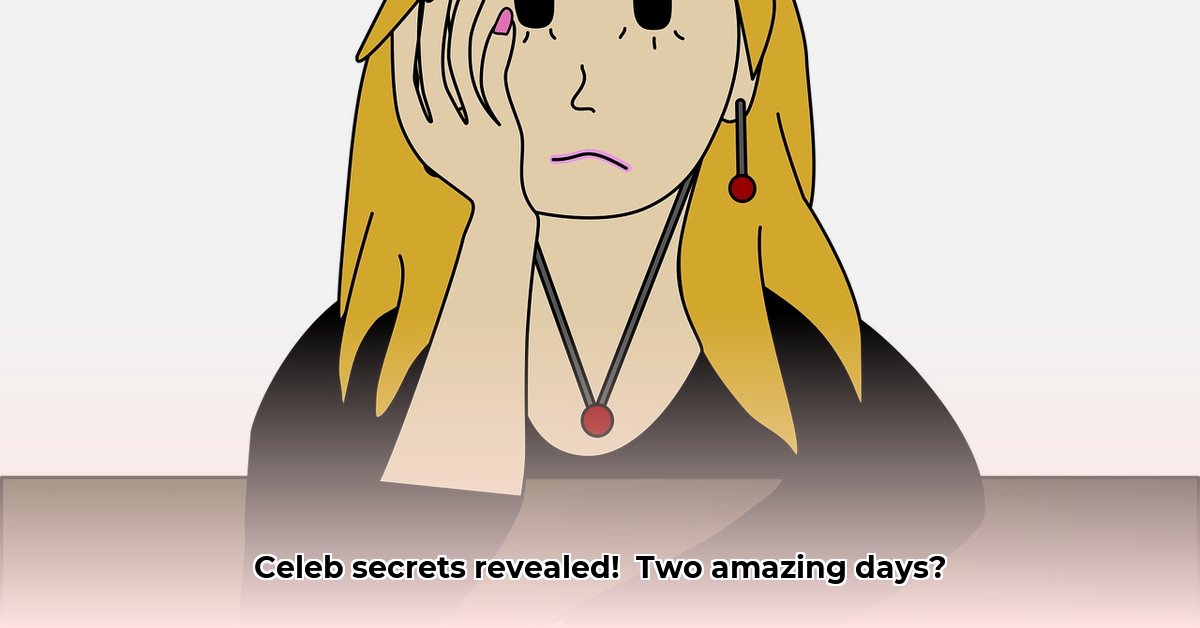
Het Waren 2 Fantastische Dagen: A Reality Check on Celebrity Lives
Forget the manufactured drama of Big Brother. Het Waren 2 Fantastische Dagen (Two Fantastic Days) offered something different – a raw, unfiltered glimpse into the lives of several prominent Dutch celebrities. Instead of contrived competitions and staged arguments, this show dropped a diverse group of well-known figures into a luxurious villa and simply observed. The result? A fascinating, and sometimes unsettling, exploration of fame, vulnerability, and the masks we all wear. But did it truly live up to its title, or was it just another reality TV gimmick? Let's delve in. For more on reality TV analysis, check out this insightful resource.
The Setting: A Luxury Pressure Cooker
Unlike the cramped confines of Big Brother, Het Waren 2 Fantastische Dagen employed a sophisticated, personalised villa designed to foster intimacy and encourage candid conversations. The opulent surroundings, far from distracting from the emotional core of the show, seemingly amplified the intensity of interactions, creating a pressure cooker environment ideal for observing genuine reactions (and a few carefully choreographed moments, perhaps?). This environment subtly pushed participants towards revealing more than they might have in a more ordinary setting.
Character Sketches: Unveiling the Human Behind the Headlines
The show's success hinged on its cast – a diverse mix of personalities with complex public images. From the ever-controversial Frank Masmeijer to the comparatively more reserved Igone de Jongh, each participant brought a unique set of baggage and expectations. The show effectively challenged pre-conceived notions, revealing both surprising vulnerabilities and uncomfortable truths, showcasing human behaviour under pressure. While some participants seemed to thrive in this environment, for others it was clearly a more difficult experience, offering viewers insights into the hidden aspects of celebrity personalities. How did this juxtaposition of reactions contribute to the show's overall impact - a question that still lingers. The casting alone presents a fascinating case study in reality TV dynamics.
Emotional Depth: A Balancing Act
The show's stated aim was to capture emotional honesty. And while it certainly delivered some intensely moving moments – tears, laughter, and moments of genuine connection – it also struggled to fully escape the shadow of manufactured drama. The editing played a significant role in shaping the narrative and the viewers' emotional experience, leaving some to question the authenticity of certain scenes. What percentage of the show was genuine emotion, and what percentage was cleverly crafted to manipulate reactions? The balance between these two factors, in hindsight, remains a key talking point. A thoughtful analysis of the editing techniques, coupled with reactions from involved parties, would be a valuable addition to future discussions surrounding this program.
Beyond the Villa: A Comparison with Other Reality TV
Het Waren 2 Fantastische Dagen significantly diverged from the traditional reality show format. Unlike the competitive, conflict-driven nature of Big Brother, this show focused on introspection and observation. The absence of a host or presenter further contributed to the intimate, almost voyeuristic, atmosphere. However, the lack of a guiding force or set of tasks could also have contributed to uneven pacing and, at times, a lack of clear narrative direction. This is a major point of differentiation from more structured reality formats.
The Final Verdict: A Necessary Experiment
Ultimately, Het Waren 2 Fantastische Dagen was a bold experiment, a fascinating (if somewhat flawed) exploration of celebrity life. While it certainly provided riveting moments of genuine emotion and surprising vulnerability, it also struggled to completely shake off the inevitable artifice of reality television. Its long-term impact on the genre remains to be seen, but it undeniably offered a refreshingly different approach, shifting the focus from manufactured drama to a more introspective, character-driven narrative. It certainly managed to spark conversation, with ethical considerations and the authenticity of the emotional moments remaining central to the debate.